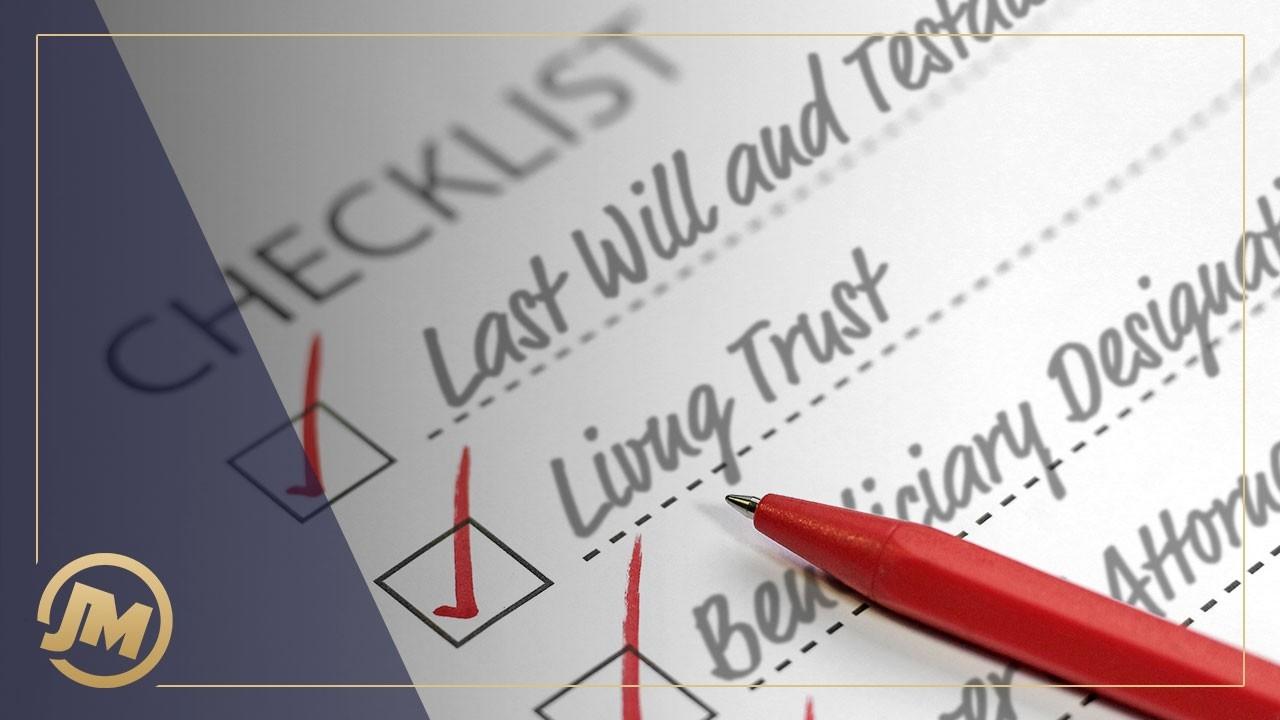The 8 Things You Must Get Done NOW!
Mar 18, 2020
Stuck at home going stir crazy, binge watching Netflix or old reruns? Well, I’ve got an important suggestion on how to utilize this downtime, to get some vital things done, and give yourself some peace of mind!
I know many of you are concerned about your future and what’s going to happen, especially during these unprecedented times. I’m feeling your pain and concern. I’m hearing it a lot from the comments I’m receiving via social media and emails.
I want to encourage you now to take advantage of this downtime and get proactive. Frankly, there’s no better time to get this stuff you’ve been putting off done now. You’ll feel a lot better about yourself by taking these proactive steps to protect you and your family!
Here’s why: the biggest issue I see with individuals is their total disorganization and lack of preparedness when it comes to their finances. Lack of financial preparedness and organization is directly correlated to financial devastation.
It’s far too common that many legal tasks have not been completed and this can be absolutely devastating to everyone in your family. I often here the excuse, “Yes, John I know I have to get that done … I just never had time.”
Well now you do!
In terms of the actual documentation and execution of these things, depending on your budget, you can either utilize an online service like Legalzoom – which would be the cheaper route, or hire an estate planning attorney to put all of this together for you.
I always recommend using an experienced attorney – but if you just can’t afford it, don’t let that stop you from using an online service. Get this stuff done now. If you do use an attorney, shop around because attorney costs can vary widely.
If you do use an attorney, there’s quite a bit of pre-work you can start doing now. Today, as a matter of fact!
 Now, I want to dig in. Here’s what you should be doing now.
Now, I want to dig in. Here’s what you should be doing now.
- First, you need a Last Will and Testament. The fundamental purpose of a will is to outline who will receive your assets upon your death. Another important purpose of a will is to specify guardianship for your minor children.
Over 60 percent of people die without a will. And, of the 60% of people who didn’t complete a will themselves do actually get one in the end … it’s created by the US probate courts. They decide who gets what on your behalf.
Don’t let your loved ones go through that. It can be a real mess that leaves a lot of family members stressed and often leads to anger, hurt, and ill feelings towards each other. On top of that, your wishes will likely not be carried out.
- Depending on your financial situation and family needs, you may need a living trust. A trust is a legal instrument that provides ongoing management for your assets. It is a good idea to leave assets in trust if the beneficiaries are minors, incapacitated, or if they are simply not financially responsible. Unlike a will, where anyone can have access to the information upon your death, another benefit of a trust is that they are private.
- Now is a great time to go back and take a look at the beneficiary designations you set up for your retirement accounts and life insurance policies and other accounts you have. Over the years, things change and so do beneficiaries. Whoever is named in those accounts and policies today is locked in no matter what – until you make changes. I can’t tell you how many stories I’ve heard of people who passed away and didn’t change those designations – leaving money to a lot of people they didn’t want to – ex-spouses, girlfriends, boyfriends, siblings, etc. This is extremely important!
- Power of Attorneys. A Power of Attorney allows you to choose someone to act on your behalf -financially and legally- in the event you can’t make decisions. Keep in mind, it is critical that you completely trust the person to whom you provide this power as he or she can legally act on your behalf.
- Your Healthcare Power of Attorney. This is to ensure someone can make medical decisions for you in the event you become incapacitated. No financial authority is granted in this document, only medical power. So, you could provide one person the Power of Attorney and another person the Healthcare Power of Attorney, if you desire. That may make sense in some situations.
- Your Living Will. While the Healthcare Power of Attorney authorizes another to make medical decisions on your behalf, a Living Will (also known as a Healthcare Directive) sets out your predetermined wishes regarding end-of-life care should you become terminally ill or permanently unconscious. Essentially, it takes the decision to withhold life-saving strategies out of the hands of your medical providers and loved ones so that they are not burdened by those difficult decisions and so that you can be assured your wishes are respected.
- Your HIPAA Release. Without the legal authority to share medical records, your family may not be able to obtain important information regarding your medical condition and treatment if you were to become incapacitated. A HIPAA release allows your medical providers to share and discuss your medical situation with whomever you specify in the document.
- A Letter of Intent. A Letter of Intent is for instructions, special requests, and personal information that doesn’t fit in the above documents. Use it to convey your wishes for things you hope will be done – for example about your funeral arrangements or specific bequests of personal items and those kind of things.
I hope this has been helpful and I hope it ignites the spark you need to get moving and get these things done. Remember, you’ll feel very relieved once this stuff is completed.
Remember, the greatest power you have is the power to choose your financial future
and it’s never too late to start your journey to financial freedom and peace of mind.



